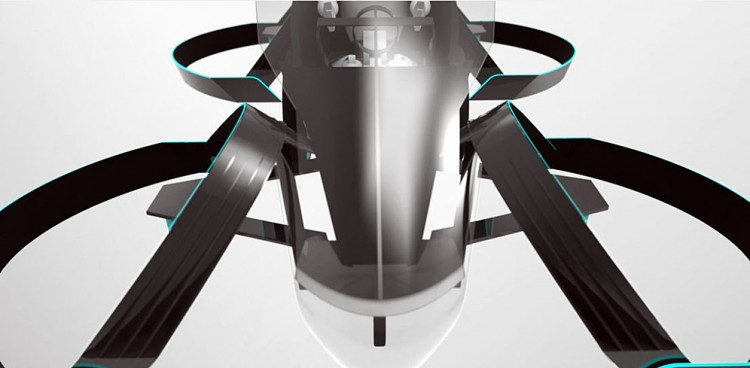Japan is playing catch-up in the new and profitable field of flying-cars or autonomous aerial vehicles and promises to craft a comprehensive roadmap for its development by year-end.
The public-private partnership to get Japan on the flying car map involves the Ministry of Economy, Trade, and Industry (METI) along with 21 corporations (Japanese and foreign) and organizations. The shared goal: make flying cars ubiquitous in Japanese skies by 2028.
And Japan plans to issue a spectacular statement about its seriousness to become a major flying car player: it plans to use a home-grown flying-car to light the Olympic Torch during the opening ceremonies of the 2020 Tokyo Summer Olympic Games in July. Flying cars are also called eVTOL or electric Vertical Takeoff and Landing aircraft.
ANA (Japan's largest airline), Japan Airlines, Toyota Motor Corporation, and NEC Corporation are among the dozen Japanese corporate behemoths leading the flying car effort. Partnering them are aviation heavyweight The Boeing Company and Airbus Industries, and ride-hailing firm Uber, which is also developing its own flying cars.
This is such a totally new sector Japan has a good chance of not falling behind, said Fumiaki Ebihara, who is in charge of the project. Ebihara is a Consulting Fellow and Director, Aerospace and Defense Industry Division, Manufacturing Industries Bureau of METI.
People might "think of 'Back to the Future,' 'Gundam,' or 'Doraemon,'" said Ebihara, referring to flying vehicles in Japanese anime and Hollywood movies. He noted that up to now, it was just a dream. But with innovations in motors and batteries, it's time for flying cars to become real.
Toyota recently invested $375,000 in Japanese start-up, Cartivator, which is working on a flying car. Toyota and Cartivator plan to have one of their flying cars light the torch at the 2020 Summer Olympic Games in Tokyo.
Cartivator won Toyota's backing in mid-2017 with its Cartivator Skydrive concept. Ryutaro Mori, the business director at Cartivator, said Skydrive is being designed from the start to be as compact as possible. He boasted Skydrive "is the world's smallest flying car, and the small size enables people to take off and land anywhere."
He pointed out that flying-cars as a means of transportation will be completely autonomous, just like autonomous cars. And even if government regulations require pilots to fly these flying-cars at first, these pilots will constantly be augmented by semi-autonomous flight systems for additional safety.
Mori said the fun of driving and flying won't go away. There will be flying cars for leisure that you can manually drive and fly safely.
Japan has shown much enthusiasm for Uber's work on EVtol machines while denying the ride-hailing company a license to operate in the country. Uber is considering Tokyo as its first launch city for affordable flights via its UberAir service.






